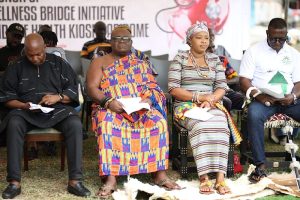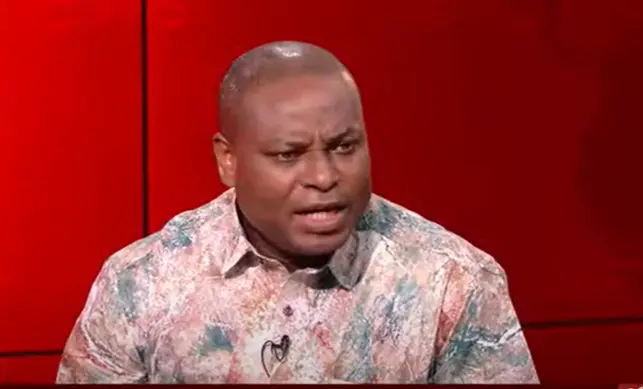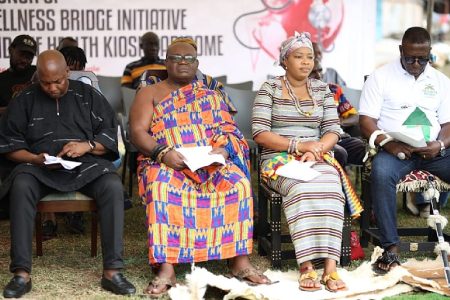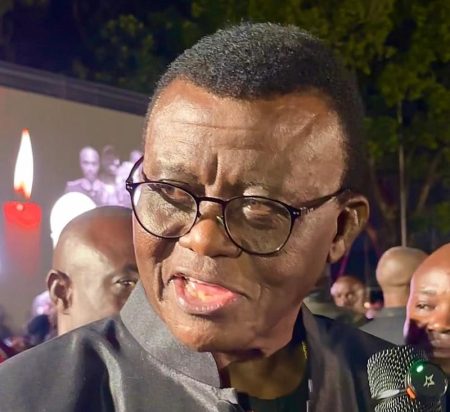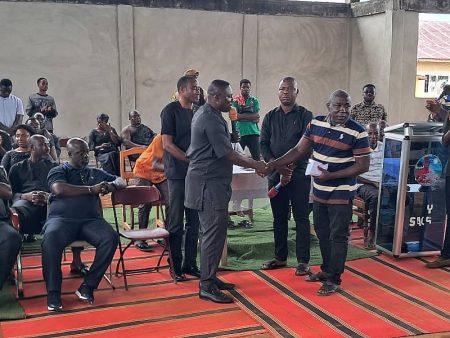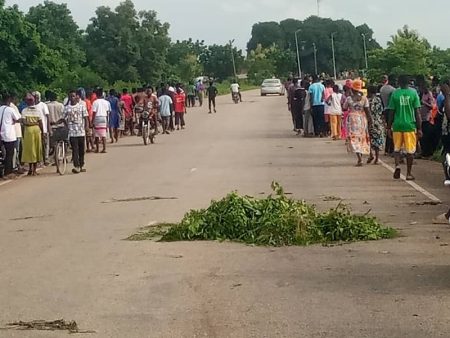The New Patriotic Party (NPP) has launched a scathing indictment of the National Democratic Congress (NDC) following the Ablekuma North parliamentary rerun, alleging a calculated strategy of voter intimidation and manipulation of the security apparatus. Richard Ahiagbah, the NPP’s Director of Communications, accused the NDC of deliberately sidelining state security forces and deploying party loyalists to create an atmosphere of fear and suppress NPP voter turnout. Ahiagbah contends that the NDC, recognizing their impending loss, orchestrated the security breakdown to manipulate the rerun in their favor. He questioned the absence of arrests and highlighted what he perceived as a blatant disregard for the safety and security of voters, suggesting that the NDC’s actions undermined the integrity of the electoral process.
Ahiagbah’s accusations paint a picture of a pre-meditated plan by the NDC to subvert the democratic process. He argues that the violence and chaos witnessed during the rerun were not spontaneous but rather a deliberate tactic to intimidate voters and influence the outcome. By allegedly demobilizing official state security and replacing them with partisan operatives, the NDC, according to Ahiagbah, effectively hijacked the security framework of the election. This, he argues, created an environment where only NDC supporters felt safe enough to participate, thus skewing the results. The lack of arrests following the violence, Ahiagbah suggests, further implicates the NDC and points to a potential collusion between the party and elements within the security apparatus.
The NPP’s allegations raise serious concerns about the fairness and transparency of the Ablekuma North rerun and the broader implications for Ghana’s electoral system. The alleged manipulation of security forces represents a dangerous precedent, potentially undermining public trust in the integrity of future elections. Ahiagbah’s pointed questions regarding the absence of arrests highlight the perceived lack of accountability and raise suspicions of potential complicity within the security forces themselves. This alleged collusion, if substantiated, could severely erode public confidence in the impartiality of state institutions and their ability to safeguard the democratic process.
The accusations leveled by the NPP underscore the escalating political tensions and growing distrust surrounding Ghana’s electoral processes. The Ablekuma North rerun, initially intended to resolve a dispute from the 2024 general elections, has become a focal point for these concerns, highlighting vulnerabilities within the system and the potential for manipulation. The alleged intimidation tactics employed by the NDC, as described by Ahiagbah, strike at the heart of democratic principles, disenfranchising voters and casting a shadow over the legitimacy of the election outcome.
Ahiagbah’s strong condemnation of the state’s perceived failure to protect its citizens during the rerun adds another layer of complexity to the situation. He argues that the state not only failed in its duty to ensure a safe and secure voting environment but actively contributed to the problem by allowing the alleged demobilization of official security forces. This perceived abdication of responsibility raises critical questions about the state’s commitment to upholding the rule of law and protecting the democratic rights of its citizens. The lack of intervention, according to Ahiagbah, allowed the NDC to operate with impunity, further eroding public trust in the state’s ability to guarantee free and fair elections.
The allegations put forth by the NPP demand a thorough and impartial investigation to determine the veracity of the claims and hold those responsible accountable. The alleged manipulation of security forces, voter intimidation, and the lack of subsequent arrests warrant a comprehensive examination to restore public confidence in the integrity of Ghana’s electoral system. Failure to address these issues effectively could have long-lasting consequences, further exacerbating political tensions and undermining the democratic foundations of the nation. The rerun in Ablekuma North has become a critical test for Ghana’s democratic institutions and its commitment to ensuring free, fair, and transparent elections.



